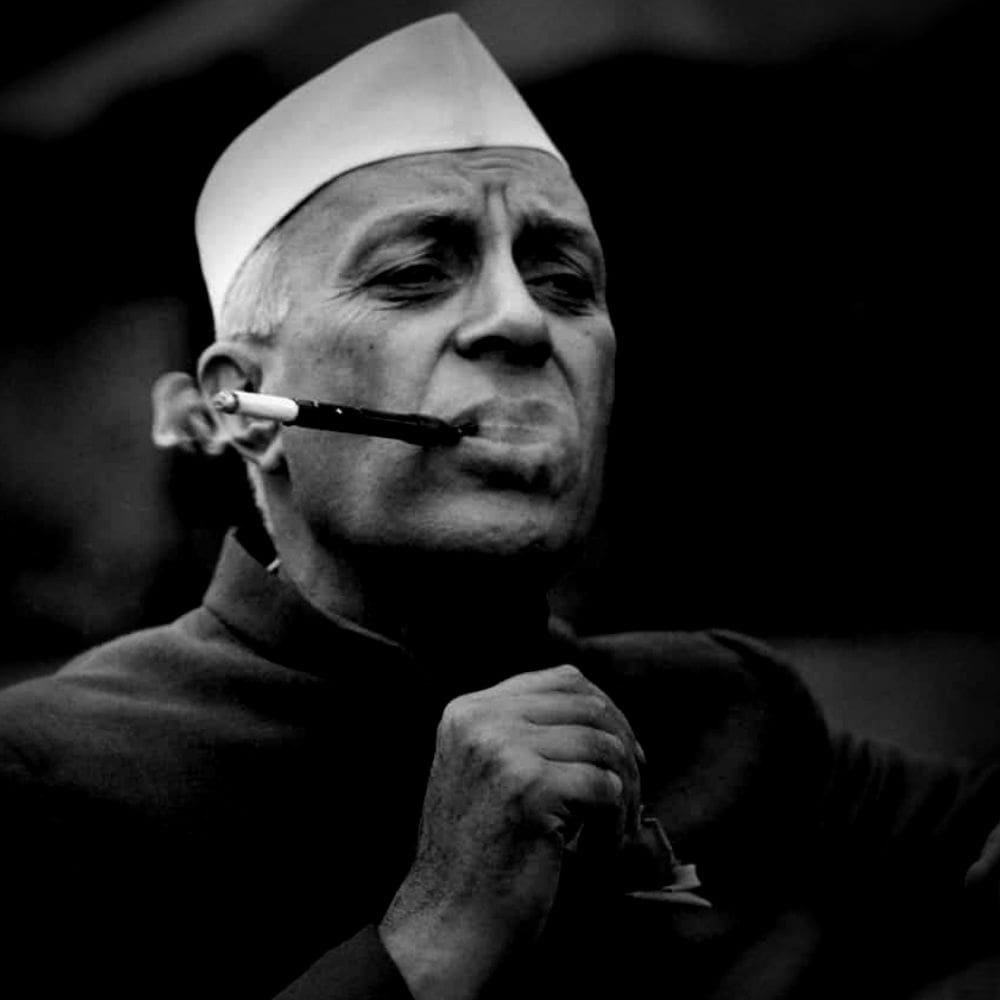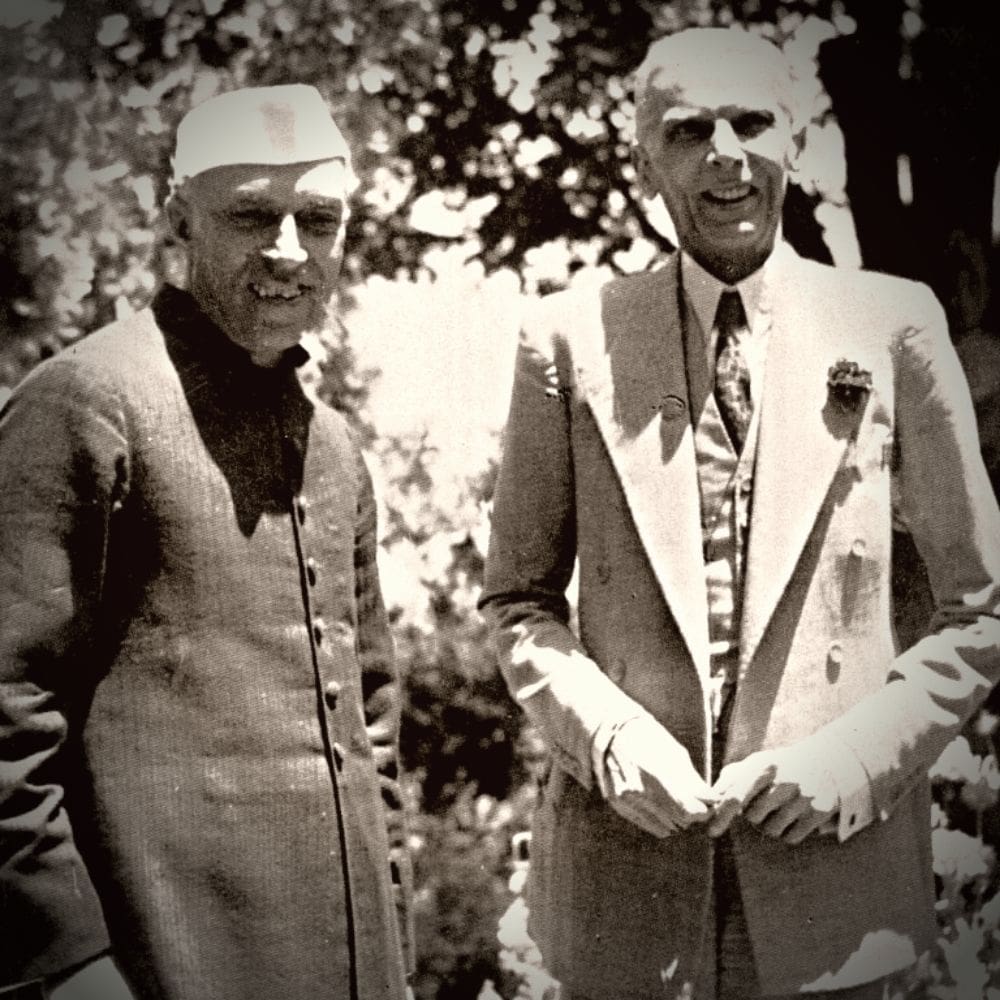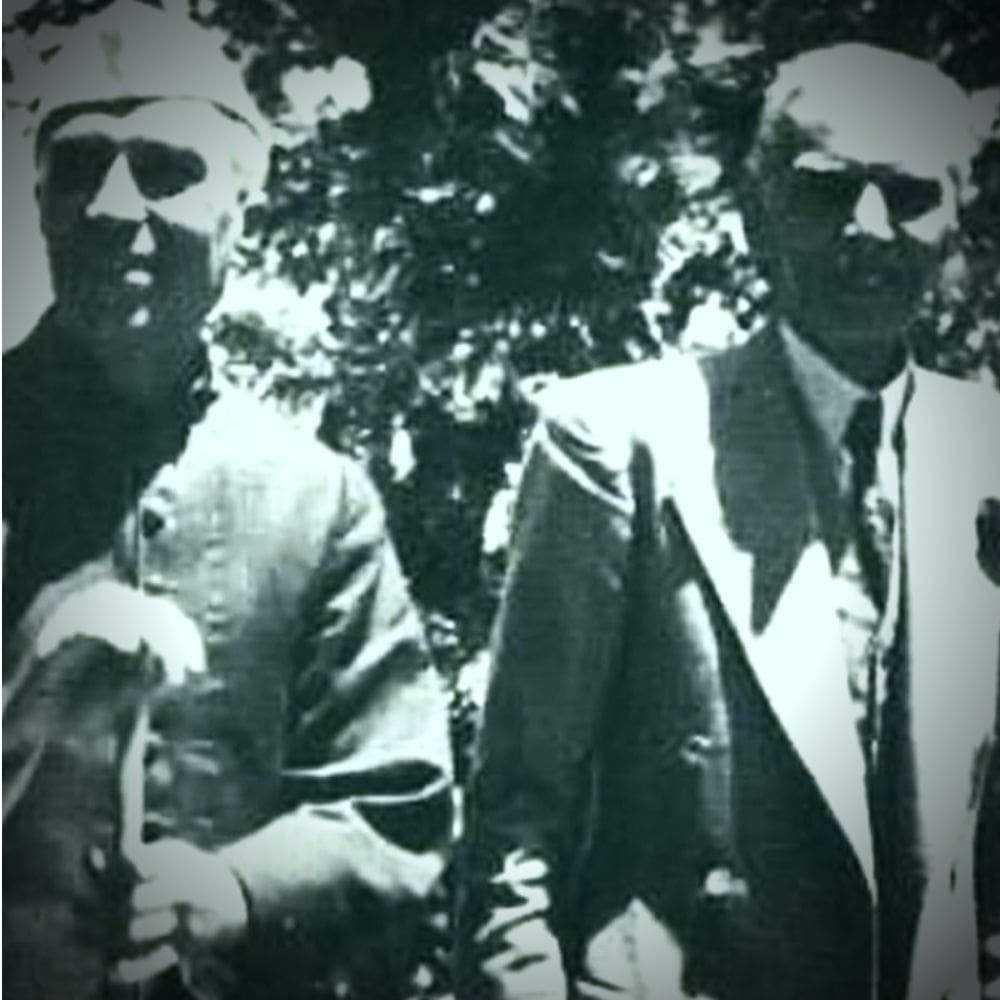NEHRU’S UNDEMOCRATIC ELEVATION AS THE FIRST PM
RACE FOR INDIA’S FIRST PM : SARDAR PATEL AS THE CLEAR CHOICE
Post 1945, with the increasing hopes of the imminence of India’s independence, all patriots looked forward to having a strong, assertive, competent, decisive, no-nonsense person as India’s first prime minister, who would bring back the lost glory of India, and turn it into a modern, prosperous nation. Iron Man Sardar Patel was the clear choice, being a cut much above the rest. And, nobody looked forward to having some undemocratic, indecisive, clueless leader to mess up a hard-won freedom after centuries.
The Congress Party had practically witnessed Sardar Patel as a great executor, organizer and leader, with his feet on the ground. Sardar had demonstrated his prowess in the various movements and assignments, including that in the Nagpur Agitation of 1923; the Borsad Satyagraha of 1923; excellent management of the Ahmedabad Municipality during 1924- 27; tackling of the Ahmedabad Floods of 1927; the Bardoli Satyagraha of 1928 that earned him the title of “Sardar”; the Dandi March and the Salt Satyagraha of 1930; successful management of elections for the Congress during 1934-37; preparation, conduct and management of Haripura session of the Congress in 1938 on a massive scale; building up of the party machine; role in preparation for the Quit India Movement; and premier leadership role 1945 onwards.
Patel’s achievements were far in excess of Nehru’s, and all Congress members and the country knew it. Sardar was also far better academically, and far wiser than Nehru. Like Nehru, Sardar Patel too had studied in England. But, while Nehru’s father financed all his education, Sardar financed his own education in England, through his own earnings! While Nehru could manage to scrape through in only a poor lower second-division in England, Sardar Patel topped in the first division!
Professionally too, Sardar was a successful lawyer, while Nehru was a failure. Sardar had a roaring practice, and was the highest paid lawyer in Ahmedabad, before he left it all on a call by Gandhi; while Nehru was dependent upon his father for his own upkeep, and that of his family. Besides, Sardar was a great administrator.
Wrote Balraj Krishna: “Common talk among the members of the Indian Civil Service post- Independence used to be: ‘If the dead body of the Sardar were stuffed and placed on a chair, he could still rule.”
Based on the ground-level practical experience since 1917, it could be said with certainty in 1946 that Nehru was no match for Sardar for the critical post of the prime minister. Of course, Nehru as PM in practice confirmed beyond a shred of doubt that it should have been Sardar, and not him, who should have been the first PM of India—as this book amply brings out.
LEGAL PROCEDURE FOR THE ELECTION
Whoever became the president of the Congress in 1946 would have also become the first prime minister of India, hence the presidential election was critical. As per the laid down procedure in practice for many decades, only the Pradesh Congress Committees (PCCs) were the authorised bodies to elect a president. There were 15 such PCCs They were supposed to send their nomination to the Congress Working Committee (CWC). The person who received maximum nominations was elected as President. There being 15 PCCs, at least 8 PCCs had to nominate a specific individual for him or her to gain the majority to become president. In 1946, the last date of nominations for the post of the president was 29 April 1946.
RESULT OF THE ELECTION : SARDAR WON UNOPPOSED
The Congress Working Committee (CWC) met on 29 April 1946 to consider the nominations sent by the PCCs. 12 of the 15 (80%) PCCs nominated Sardar Patel ; and 3 PCCs out of the 15 (20%) did not nominate anyone. It therefore turned out to be a non-contest. Sardar Patel was the only choice, and an undisputed choice, with not a single opposition.
What was noteworthy was that on 20 April 1946, that is, nine days before the last date of nominations of 29 April 1946, Gandhi had indicated his preference for Nehru. Yet, not a single PCC nominated Nehru!
HIJACKING OF THE ELECTION BY NEHRU–GANDHI
Looking to the unexpected (unexpected by Gandhi) development, Gandhi prodded Kripalani to convince a few CWC members to propose Nehru’s name for the party president. Gandhians like Kripalani slavishly went by what their guru, the Mahatma, directed. Kripalani promptly and unquestioningly complied: He got a few to propose Nehru’s name. Finding this queer development, Sardar Patel enquired with Gandhi, and sought his advice. Gandhi counselled him to withdraw his name. Patel complied promptly, and didn’t raise any question. That cleared the way for Nehru. The “democratic” Nehru didn’t feel embarrassed at his and Gandhi’s blatant hijacking of the election, and shamelessly accepted his own nomination.
Said Kripalani later: “Sardar did not like my intervention.” Years later Acharya Kripalani had told Durga Das:
“All the P.C.C.s sent in the name of Patel by a majority and one or two proposed the names of Rajen Babu in addition, but none that of Jawaharlal. I knew Gandhi wanted Jawaharlal to be President for a year, and I made a proposal myself [at Gandhi’s prodding] saying ‘some Delhi fellows want Jawaharlal’s name’. I circulated it to the members of the Working Committee to get their endorsement. I played this mischief. I am to blame. Patel never forgave me for that. He [Sardar Patel] was a man of will and decision. You saw his face. It grew year by year in power and determination…”
NEHRU’S OBDURACY
Finding none had recommended Nehru, Gandhi, reportedly, did tell Nehru: “No PCC has put forward your name…only [a few members of] the Working Committee has.” Nehru, however, responded with complete silence to this pregnant remark. Despite his grand pretentions of Gandhi as his father figure, and he being his son, chela and follower, Nehru remained silently defiant and let it be known to Gandhi he would not play second fiddle to anyone. It appears that all the “sacrifice” for the nation by Motilal and his son was geared to ultimately grab power for the Nehru dynasty! It has even been claimed that Nehru tried blackmail: he threatened to split the Congress on the issue.
Somebody asked Gandhi why he favoured Nehru. Reportedly, Gandhi’s reason was he wanted both Nehru and Patel together to lead the nation, but while Nehru would not work under Sardar Patel, he knew that in the national interest he could persuade Sardar Patel to work under Nehru, as Sardar would not defy him. What Gandhi said amounts to this: that Sardar Patel, even though senior and more experienced, and backed by majority, was patriotic enough to work under Nehru in the national interest, if so prodded by Gandhi; Nehru, junior, less experienced, and not backed by a single PCC, wanted only to become PM, and was not patriotic enough to work under Patel, in the national interest, even if persuaded by Gandhi! Durga Das recounted the following:
“I asked Gandhi… He [Gandhi] readily agreed that Patel would have proved a better negotiator and organiser as Congress President, but he felt Nehru should head the Government. When I asked him how he reconciled this with his assessment of Patel’s qualities as a leader, he laughed and said: ‘Jawaharlal is the only Englishman in my camp… [then, why talk of swadeshi and swaraj!] Jawaharlal will not take second place. He is better known abroad than Sardar and will make India play a role in international affairs [Why not make him Foreign Minister then? Although, Nehru made a mess of the foreign policy]. Sardar will look after the country’s affairs. They will be like two oxen yoked to the government cart. One will need the other and both will pull together.”
NEHRU–GANDHI ACT : WHY GROSSLY IMPROPER?
Gandhi’s actions must be judged in the background of his being a “Mahatma”, and an “Apostle of Truth and Non-Violence”. As Gandhi had himself stressed, “non-violence” didn’t have a narrow interpretation as just lack of violence, but a broad interpretation where things like anger, illegal and unjust acts also came within the broad definition of violence. What Gandhi and Nehru manoeuvred was not only illegal, immoral and unethical, but also against the interest of the nation. Here are the reasons for the same:
(1) Illegality-1 : PCCs alone were authorised to elect the president. There was nothing in the Congress constitution to permit that rule to be overturned. How could Gandhi overrule what 15 PCCs had recommended? On what legal basis? Gandhi’s action was illegal.
(2) Illegality-2 : Gandhi had resigned from the primary membership of the Congress back in 1934 to devote himself to “constructive work” (Were political work and fighting for freedom “destructive”?). Thereafter, he had never rejoined the Congress. How could a non-member of the Congress like Gandhi dictate who should be the president of the Congress, or even participate in CWC meetings? Yet, another illegality.
(3) Unreasonable-1: Did Gandhi put on record his reasons for overruling the recommendations of the PCCs? No.
(4) Unreasonable-2 : Did Gandhi put on record why Patel was not suitable as the president, and hence the first PM, and why Nehru was a better choice? No.
(5) Unreasonable-3 : Was there a proper and threadbare discussion in the CWC on why Patel was not suited for the post, and therefore why the recommendations of the PCCs should be ignored? And, why, instead, Nehru should be chosen? No.
(6) Unreasonable-4 : If CWC was not convinced of the recommendations of the PCCs, why didn’t it refer the matter back to the PCCs, and ask them to re-submit their recommendations, with detailed reasoning? The decision could have been postponed.
(7) Against National Interest-1 : How could responsibility of such critical nature be assigned to a person without doubly ensuring that person’s relative suitability through fair and democratic discussions among all CWC members, and, of course, finally through voting.
(8) Against National Interest-2 : National interests demanded that the choice of person was dictated not by personal biases, and diktats, but by suitability, and mutual consensus, and the reasons should have been put on record.
(9) Dictatorial & Undemocratic-1 : How could an individual like Gandhi dictate who should or should not be the president, and hence the first PM? And, if that was fine for the Congress, then why the sham of elections, and votes of the PCCs?
(10) Dictatorial & Undemocratic-2 : What kind of freedom “fighters” we had in the Gandhian Congress that they didn’t even assert their freedom within the CWC, or show their guts against the slavery of Gandhi, and voice their opinions? Was an individual Gandhi correct, and were the 15 PCCs wrong?
(11) Unethical-1 : Leave apart the legal and other aspects, was it ethical and moral and truthful for Gandhi to do what he did? If indeed he thought he was correct, and all others were wrong, the least that was expected from him was to explain his logic and reasoning. Or, was he above all that? Do what you want—no questions asked!
(12) Unethical-2 : How could a person being nominated for president, and therefore as the first Indian PM, be so devoid of integrity, fair-play and ethics as to blatantly be a party to the illegality of throwing the recommendations of the PCCs into a dustbin, and allowing oneself to be nominated?
(13) Unembarrassed : Did it not embarrass Nehru that he was usurping a position undemocratically through blatantly unfair means? Did it behove a future PM?
(14) Blot & Blunder : Overall, it was a blot on the working of the CWC, and on the CWC members, and particularly Gandhi and Nehru, that they could so brazenly commit such a blunder, which ultimately cost the nation heavy.
REACTIONS OF STALWARTS ON THE IMPROPER ACT
“If Gandhi had his reasons for wanting Jawaharlal, the party had its for wanting [Sardar] Patel, whom it saw, as Kripalani would afterwards say, as ‘a great executive, organizer and leader’, with his feet on the ground. The party was conscious too of Sardar’s successful Quit India exertions, not matched by Jawaharlal.”
—Rajmohan Gandhi
“I sent a paper round proposing the name of Jawaharlal… It was certain that if Jawaharlal’s name had not been proposed, the Sardar would have been elected as the President… The Sardar did not like my intervention. I have since wondered if, as the General Secretary, I should have been instrumental in proposing Jawaharlal’s name in deference to Gandhi’s wishes in the matter… But who can forecast the future? On such seemingly trivial accidents depends the fate of men and even of nations.”
—Acharya Kriplani
“When we members of the Mahakoshal PCC preferred him [Patel] to Nehru as Congress President, we had no intention of depriving Nehru of future Premiership. The younger man had already been raised to the office of Congress President thrice, and we therefore thought it just and proper that Patel, the older man, should have at least a second chance [at Presidency, and thus be the first PM].”
—DP Mishra
“Gandhi has once again sacrificed his trusted lieutenant for the sake of the glamorous Nehru.”
—Dr Rajendra Prasad
“…Taking all facts into consideration, it seemed to me that Jawaharlal should be the new President [of Congress in 1946—and hence PM]. Accordingly, on 26 April 1946, I issues a statement proposing his name for Presidentship… [Then] I acted according to my best judgement but the way things have shaped since then has made me to realise that this was perhaps the greatest blunder of my political life … My second mistake was that when I decided not to stand myself I did not support Sardar Patel. We differed on many issues but I am convinced that if he had succeeded me as Congress President he would have seen that the Cabinet Mission Plan was successfully implemented. He would have never committed the mistake of Jawaharlal which gave Mr. Jinnah an opportunity of sabotaging the Plan. I can never forgive myself when I think that if I had not committed these mistakes, perhaps the history of the last ten years would have been different.”
—Maulana Azad
“When the independence of India was coming close upon us and Gandhiji was the silent master of our affairs, he had come to the decision that Jawaharlal, who among all the Congress leaders was the most familiar with foreign affairs [although the Nehruvian years proved Nehru had made a mess of the foreign policy and external security], should be the Prime Minister of India, although he knew Vallabhbhai would be the best administrator among them all… Undoubtedly it would have been better… if Nehru had been asked to be the Foreign Minister and Patel made the Prime Minister . I too fell into the error of believing that Jawaharlal was the more enlightened person of the two… A myth had grown about Patel that he would be harsh towards Muslims. That was a wrong notion but it was the prevailing prejudice.”
—Rajaji, Swarajya, 27.11.1971
“Rajaji once unburdened his heart by publicly confessing to a wrong he had done to Sardar Patel. I find myself in a similar situation: the dominant feeling within me today is one of self-reproach, because during his lifetime, I was not merely a critic, but an opponent of the Great Sardar.”
—Jayaprakash Narayan(JP)
“My own understanding is that if Sardar Patel had been Prime Minister during that time and not Nehru, India would have gone further and faster.”
—Minoo Masani, ‘Against the Tide’
“The Sardar, as Congress’s strongman was called, was determined to stay and solve whatever problems remained, rather than running away from them. He had long viewed Nehru as a weak sister and often wondered why Gandhi thought so highly of him.”
—Stanley Wolpert
Rajaji took over from Mountbatten as the Governor-General (GG) of India on 21 June 1948. When Nehru had suggested Rajaji’s name as the GG, Rajaji had, in fact, written to Nehru that he (Nehru) should himself take over as the Governor-General (GG), and make Sardar Patel the Prime Minister. However, Nehru, vide his letter of 21 May 1948 to Rajaji, had politely turned down the suggestion: “Please forgive me for the delay in answering your telegram No.26-S dated 12th May 1948 in which you suggested that I [Nehru] might be GG [Governor General]. Any suggestion from you is worthy of thought, but I am afraid the present one is completely impracticable from various points of view…”




